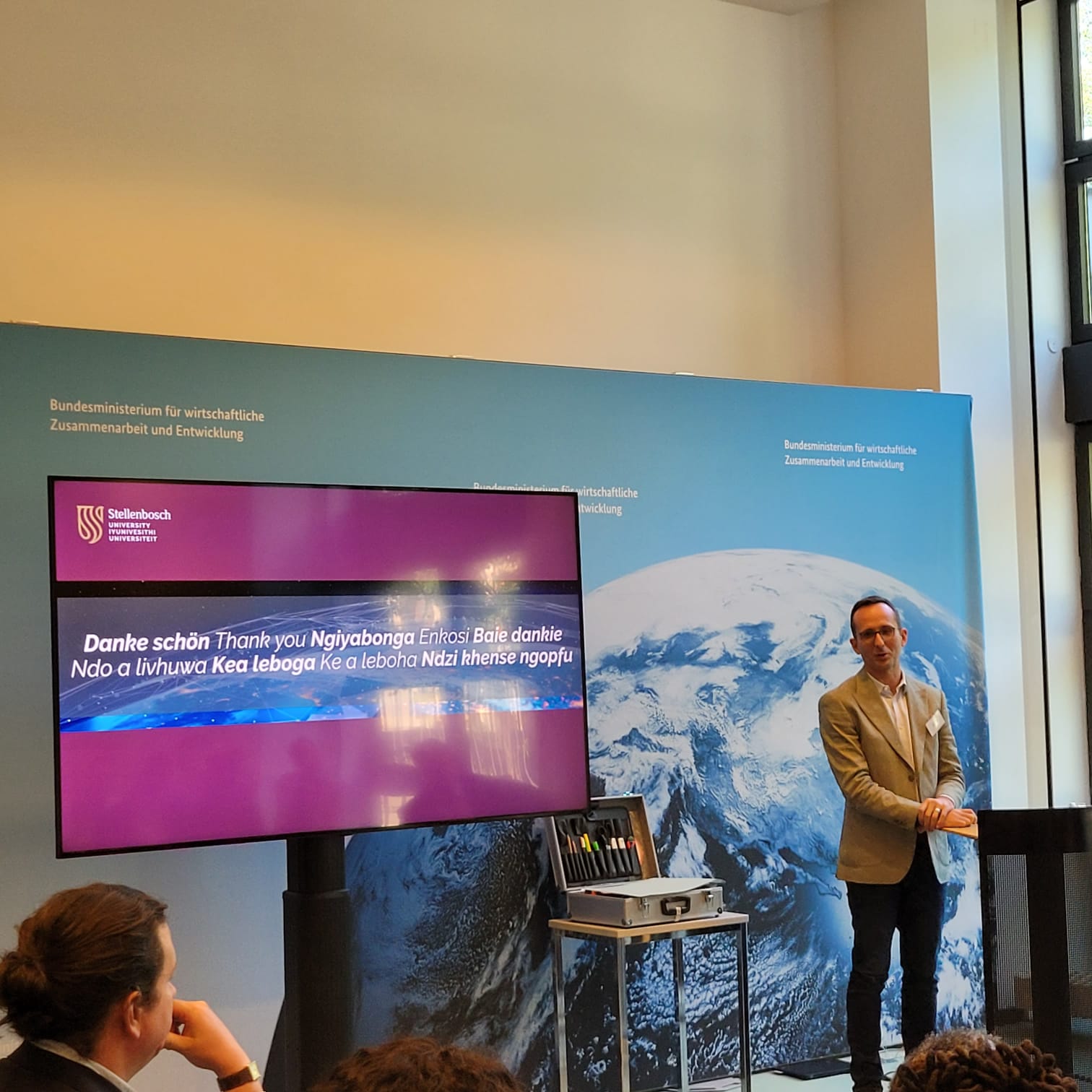Prof. Willem Fourie, Chair of Policy Innovation and lead of the Policy Innovation Lab, recently took part in a workshop with key German institutions to explore the use of AI in public administration. The workshop, hosted by Germany’s Federal Ministry for Economic Cooperation and Development (BMZ), was supported by the GIZ South Africa, Lesotho and eSwatini. It brought together experts from the BMZ, Germany’s Foreign Office, and GIZ’s Global Programme Data2Policy. It formed part of a multistakeholder learning excursion made possible by the GIZ.
The workshop, which featured presentations from South African and German representatives, covered various aspects of AI-driven transformation. In his presentation, Fourie presented the work of the Policy Innovation Lab at Stellenbosch University. He highlighted the Lab’s focus on strengthening policymaking through the improved use of data science and artificial intelligence tools. The Policy Innovation Lab does so by focusing on three interrelated topics: supporting the institutional readiness for the use of data science and AI tools; providing capacity building to enable the increased uptake of such tools; and developing and prototyping fit for purpose tools. These objectives are pursued through engagement not only with policymakers but also involves collaboration with partners in civil society, the private sector and South Africa’s other publicly-funded universities.
Dr Iliya Nickelt, BMZ’s Chief Data Scientist, provided an overview of Germany’s approach, which began as an EU-funded initiative and now includes data labs across federal states. These labs focus on improving data competency within the government and support the use of AI and data for policymaking. The labs offer training, data analysis, experimentation and product development, though a lack of data governance and technical infrastructure remain significant challenges. Nickelt also discussed the difficulty in driving digital transformation through top-down initiatives, which often fail to engage citizens effectively.
The Data Innovation Lab from Germany’s Foreign Office presented its role as a platform for international collaboration, with a focus on data governance, AI ethics, and fostering innovation across sectors. Established in June 2023, the lab aims to enhance data literacy within foreign policy and has developed a tool called ‘Diplomacy GPT’ to analyse public qualitative data. The lab’s work supports partnerships with local actors, civil society, UN agencies, and tech entrepreneurs, helping to drive innovation in foreign policy through creative data solutions.
Fourie noted that while AI has immense potential, it is still in its early stages in the public sector. South Africa faces similar challenges to Germany in terms of institutional readiness and the need to build data competency. However, the workshop provided valuable insights into how AI and data labs can transform public administration, offering lessons that could accelerate South Africa’s own digital transformation journey.
